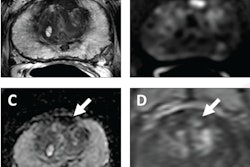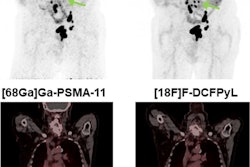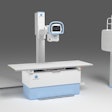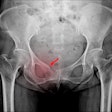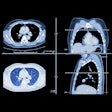Dear AuntMinnie Member,
Traditional risk assessment models only produce modest accuracy in predicting breast cancer. But a deep-learning algorithm can improve on that performance, according to our most popular story of the week.
Radiation risk was the common theme in our next two featured stories, which detailed the risk interventional radiologists may face due to long-term exposure to low-dose radiation and how patients can receive significant amounts of radiation exposure from certain types of fluoroscopy procedures.
Also, researchers have analyzed the causes of contrast media-related malpractice cases and found a frequent theme.
Here are our top 5 stories of the week:
1. A mammography-based deep-learning algorithm detects more breast cancer in high-risk women than traditional risk assessment models, according to a new study.
2. Long-term exposure to low-dose radiation may leave interventional radiologists more vulnerable to DNA damage to lymphocyte cells. But there is some good news.
3. Certain types of endoscopic fluoroscopy procedures can impart significant amounts of radiation exposure to patients, a new study has found.
4. Most contrast media-related malpractice cases are caused by severe allergic reactions and clinicians’ failure to diagnose or treat such reactions, according to new research.
5. Clinicians may now have a better tool for lumbar spine imaging: x-ray tomosynthesis.




